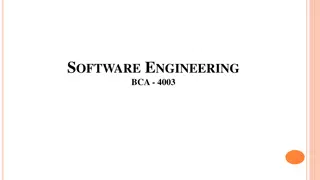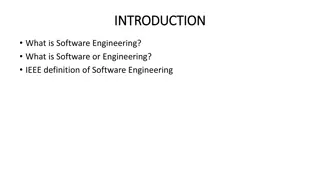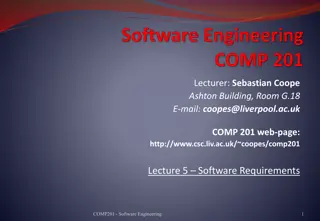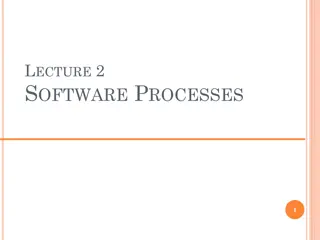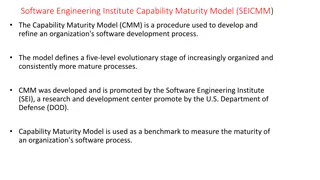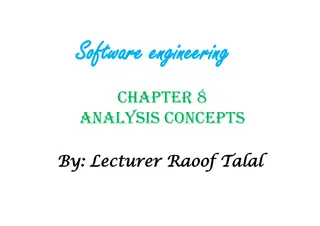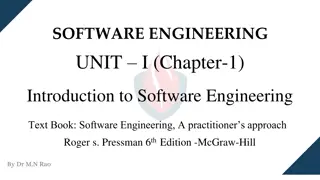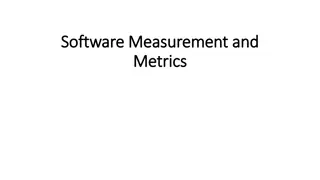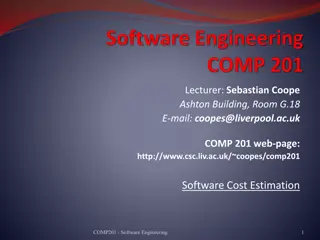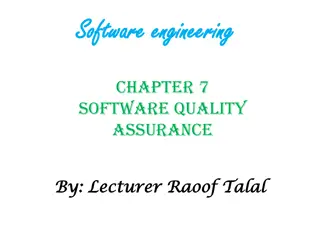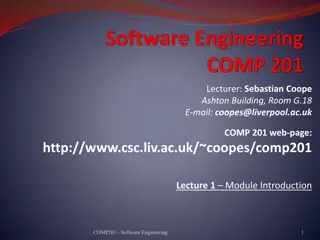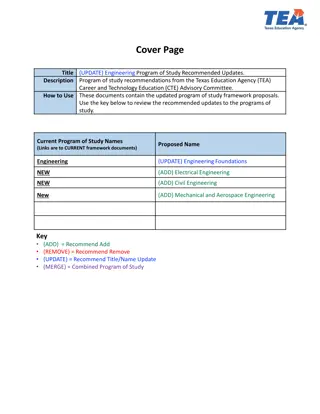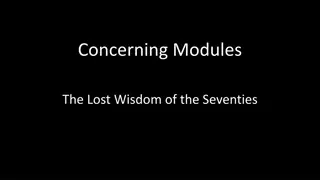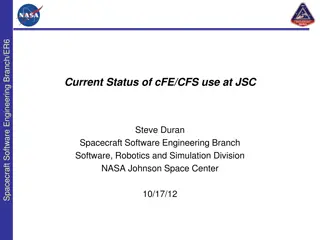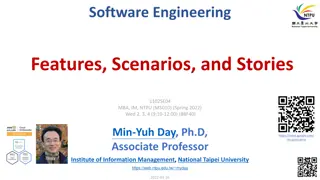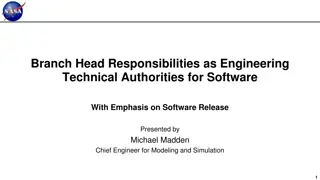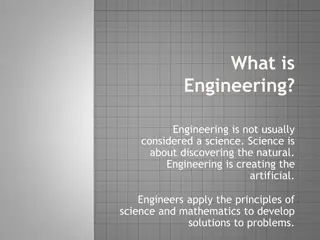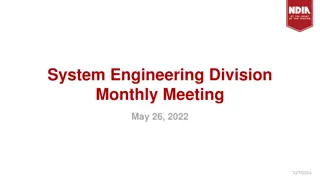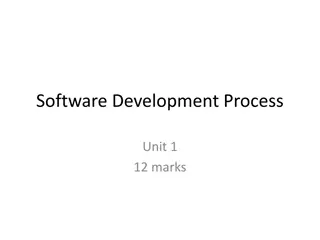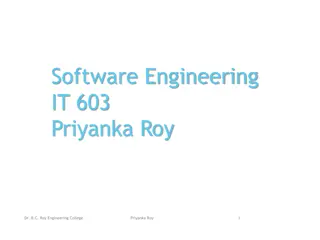Understanding Software Engineering Principles
Discover the fundamental terms and concepts in science and engineering to uncover relationships, without relying solely on formulas, and delve into software engineering by exploring job positions, defining software engineering, analyzing its principles, and highlighting best practices. Learn about iterative software development and the importance of managing requirements effectively.
Download Presentation

Please find below an Image/Link to download the presentation.
The content on the website is provided AS IS for your information and personal use only. It may not be sold, licensed, or shared on other websites without obtaining consent from the author. Download presentation by click this link. If you encounter any issues during the download, it is possible that the publisher has removed the file from their server.
E N D
Presentation Transcript
Fundamental Terms / Concepts Science and Engineering Discover Relationships that exist but are not found Formulas; chemical composition, d=r*t; calories in fats, carbohydrates, proteins; experimentation; Astrophysics origins of the universe Build Apply principles of science and mathematics to real needs, commodities, structures, products, etc. Software Engineering; Software Development 2
Fundamental Concepts Software Engineering; Software Development Job positions: Software developer Programmer Software engineer Analyst / Programmer Senior what have you 3
What is Software Engineering? The process of solving customers problems by the systematic development and evolution of large, high- quality software systems within cost, time and other constraints Note: Process, systematic (not ad hoc), evolutionary Constraints: high quality, cost, time, meets user requirements 4
Analysis of the Definition: Systematic development and evolution An engineering process involves applying well understood techniques in a organized and disciplined way Large, high quality software systems Software engineering techniques are needed because large systems cannot be completely understood by one person Cost, time and other constraints Finite resources The benefit must outweigh the cost 5
Best Practices of Software Engineering Develop Iteratively Use Model Visually Verify Quality Manage Requirements Component Architectures Control Changes 6
Practice 1: Develop Software Iteratively Until recently, developed under assumption - most requirements can be identified up front. The research deconstructing this myth includes work by Capers Jones. (See next slide) In this very large study of 6,700 projects, creeping requirements those not anticipated near the start are a very significant fact of software development life, ranging from around 25% on average projects up to 50% on larger ones. 7
Interestingly, An initial design will likely be flawed with respect to its key requirements. Requirements rarely fully known up front! Late-phase discovery of design defects results in costly over- runs and/or project cancellation Oftentimes requirements change even during implementation! While large projects are more prone to cost overruns, medium-size/small projects are vulnerable to cancellation. The key reasons continue to be poor project planning and management, shortage of technical and project management expertise, lack of technology infrastructure, disinterested senior management, and inappropriate project teams. 9
Waterfall Delays Risks R Requirements I Design S Code Waterfall risk K Integration System Test T I M E 10
Iterative Development Iteration 1 Iteration 3 Iteration 2 Earliest iterations address greatest risks Each iteration produces an executable release Each iteration includes integration, test, and assessment! Objective Milestones: short-term focus; short term successes! 11
Accelerate Risk Reduction Walker Royce, 1995 R I Risk reduction S Waterfall risk Iterative K Iteration Iteration Iteration Iteration Iteration T I M E 12
Summary Much more about iteration and iteration planning later You will see some of these again and, more importantly, use this information in your own iteration planning. 13
TEXT BOOKS 1. Richard Fairley, Software Engineering Concepts , Tata McGraw Hill, 1997. 2. Roger S. Pressman, Software Engineering - A Practitioner s Approach ,6th Ed., McGraw Hill International, 2005. Books for reference 1. Ian Sommerville, Software Engineering , Addition Wesely, Singapore,2002 2. K.K.Agarwal&Yogesh Singh, Software Engineering , New Age Intl.Publishers, Revised 2nd Ed., 2005. 14
THANK YOU 15


